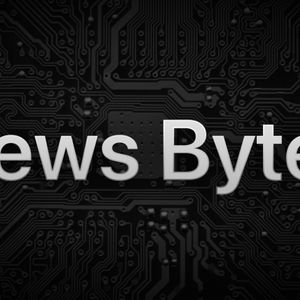

Ethereum: Equity Tokenization Is Coming
Summary BlackRock CEO Larry Fink sees a world where assets and securities are tokenized. Ethereum is already home to tokenized real world assets like Gold and other security tokens. ERC-4337 allows for "account abstraction" on Ethereum. This would be a big departure from the poor UE currently facing crypto networks. We don't need custodians anymore. That's BlackRock ( BLK ) chairman and CEO Larry Fink from his recent appearance on Fox Business ( FOX ). Most of the attention from Fink's interview justifiably centered around Bitcoin ( BTC-USD ) and BlackRock's recent Bitcoin ETF application. There were a lot of really interesting comments from that appearance but one of the most important points Fink made pertained to the future of finance and transactions: We're a believer in digitization of products. ETFs was a big revolution for the mutual fund industry and its really taking over the mutual fund industry. We do believe that if we can create more tokenization of assets and securities , that's what bitcoin is, it could revolutionize again finance. Bold my emphasis. Pertaining to blockchain specifically, Fink said the following: I actually think the underlying technology is fantastic. The blockchain will help you accelerate the processes of transactions. The blockchain will help you identify. Let's be clear, if you have a pure blockchain and you have knowledge of who the buyers and sellers are, we don't need custodians anymore. The whole process of finance, some of the intermediaries are broken down. Taking these comments together, this interview was one of the more bullish crypto conversations I can recall seeing on a legacy media platform from a traditional finance giant. These are the kinds of things retail crypto investors have been saying for quite some time. But to have a person like Larry Fink now saying them is quite a big deal in my opinion. Tokenizing Assets Let's start by explaining what tokenization fundamentally is. To buy exposure to a commodity, currency, or equity today one needs to generally go through a third party brokerage firm to facilitate the transaction. For example, if I want to get exposure to Gold ( XAUUSD:CUR ), short of buying the metal directly from a dealer and holding it in physical form, I might also get non-physical exposure through a variety of different custodians. However, traditional finance typically adds a layer of risk to holding Gold as the user is putting trust in the broker in addition to the issuer and custodian. T+2 rules also become a factor as settlement of the transaction takes two days before ownership has actually been transferred. Gold vs Derivatives (Seeking Alpha) Gold is actually one of the few real world assets that has already been tokenized. For instance, Paxos Global has issued PAX Gold ( PAXG-USD ) - a crypto token that is backed by physical gold on a 1:1 basis held by Paxos Global. This token has traded in-line with SPDR Gold Shares ( GLD ) and Gold over the last 3 years. PAXG is an ERC-20 token and is available through any decentralized exchange, or DEX, on the Ethereum ( ETH-USD ) blockchain. This means someone who holds ETH in any self-custodial wallet can get tokenized gold exposure, in fractionalized form, simply by doing a DEX swap for PAXG directly on-chain. Like other Gold derivative products, PAXG is redeemable for physical. However, unlike other gold derivatives available in traditional brokerage accounts, because PAXG is traded on Ethereum, settlement is essentially instant. Crypto users could quite literally buy and sell products or services exclusively in Gold through the PAXG token on Ethereum. USDC Supply (CoinMarketCap) Another fairly obvious example of asset tokenization is through stablecoins. While the fiat-backed stablecoin market has seen outflow since the collapse of Terra Luna ( LUNC-USD ) last year, dollars and other fiat currencies have already been tokenized through blockchain rails. Equity Tokens What we have not yet seen is a successful push toward tokenization of company equity. However, there have been attempts to do so in the past. Through a platform called Mirror Protocol on the aforementioned Terra blockchain, synthetic versions of Apple ( AAPL ) and Tesla ( TSLA ) previously traded over blockchain. Synthetix ( SNX-USD ) and UMA ( UMA-USD ) are two other protocols that have focused on synthetic versions of real assets on-chain. Binance ( BNB-USD ) and FTX ( FTT-USD ) also had a footprint in equity tokenization attempts though those products lived within the walled gardens of those exchanges rather than on the open blockchain like PAXG. Where things get very interesting though is with the potential for the tokens themselves to become the proof of equity rather than derivatives of the equity. And there is no shortage of companies trying to build regulated platforms for "security token" equity raises. Overstock's ( OSTK ) tZERO platform, Securitize , and ERX are notable examples of centralized businesses that are aiming to build internal blockchains for security token offerings and trading. However, I suspect that the entities that do best in the security token market will be the ones that integrate with public blockchain rails rather than building their own walled garden ecosystem. And we're already seeing public chains used in some of these platforms. Ethereum: Security Token Winner? Ethereum is a decentralized blockchain and is still the largest public blockchain in the DeFi space by just about any metric. Ethereum Value (billions) Smart Chain Rank Native coin Market Cap $227.8 #1 DeFi Total Value Locked $26.3 #1 Stablecoin footprint $68.7 #1 Sources: DeFi Llama, CoinMarketCap There is an immense amount of value secured by Ethereum. As the largest smart contract chain by both native coin market cap and stable coin market cap, I believe Ethereum is well positioned as the leading network candidate for security token offerings as well. We're already seeing instances of security tokens that have been built or will be built utilizing Ethereum's smart contracts: Kinesis Mt Pelerin SOMA.Finance Beyond ERC-20 tokens, there are token standards within the Ethereum ecosystem that are designed specifically with security tokens in mind; ERC-1400 and ERC-3643 are two notable examples. Furthermore, ERC-4337 could sort of be looked at as the silver bullet for network adoption because it creates "account abstraction." According to Cointelegraph Magazine , this will allow for significant improvements to the user experience on the network. 4337 will allow for batched gas fees at the dApp level and private key recovery. Each of which address large pain points for the end user. Of Course, The Risks The biggest headwind facing Ethereum at the moment is a hostile US Securities and Exchange Commission. There is a very real possibility that Ethereum could be labeled an unregistered security by the SEC. Other leading smart contract networks have already suffered this fate including Solana ( SOL-USD ) and Cardano ( ADA-USD ). That said, Ethereum is a global network and other jurisdictions with much friendlier positions on crypto may be more welcoming to the technical innovation offered by public blockchain. However, if the SEC does come after Ethereum as well, it will almost certainly result in value destruction on Ethereum in some capacity. Whether that's through declines in the price of ETH, DeFi protocols moving to a different chain, or both. Main Takeaways There have been notable criticisms of the regulatory capture threat currently facing Ethereum. Others have pointed out that even leading DEX protocols like Uniswap ( UNI-USD ) could implement KYC/AML policies in the future. From where I sit, no public blockchain will ever be perfect and satisfying everyone is an impossibility. But the direction Ethereum seems to be going is one where traditional finance players will be able to safely and easily integrate with the network in a compliant way. Larry Fink sees the future with tokenization. From where I sit, there are already companies that are working on tokenizing real world assets on public blockchain networks. Given the amount of value the network is already securing, it's difficult for me to envision a private walled-garden blockchain beating out a borderless public blockchain like Ethereum. Ethereum may not satisfy everyone from a philosophical standpoint. But purely from an investment standpoint, I'm not betting against ETH.









